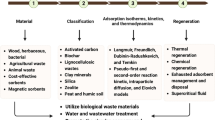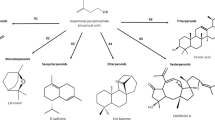Summary
The application of solid bonded-phase extraction to the cleanup of sample extracts in residue analysis has been examined. In comparison with liquid-liquid partition the following advantages are offered: the consumption of solvent is considerably reduced, these are less interferences, and accuracy and precision are improved.
Similar content being viewed by others
References
Application Bibliography (1987) Analytichem International, Inc, Harbor City, CA
Wells MJM, Michael JL (1987) J Chromatogr Sci 25:345
Loconto PR, Gaind AK (1989) J Chromatogr Sci 27:569
Rostad CE, Pereira WE, Ratcliff SM (1984) Anal Chem 56:2856
Chladek E, Marano RS (1984) J Chromatogr Sci 22:313
Wuest O, Meier W (1983) Z Lebensm Unters Forsch 177:25
Newsome WH, Collins P (1989) J Chromatogr 472:416
Van Horne KC (ed) (1985) Sorbent extraction technology handbook. Analytichem International, Inc, Harbor City, CA, pp 1–124
Author information
Authors and Affiliations
Rights and permissions
About this article
Cite this article
Odanaka, Y., Matano, O. & Goto, S. The use of solid bonded-phase extraction as alternative to liquid-liquid partitioning for pesticide residue analysis of crops. Fresenius J Anal Chem 339, 368–373 (1991). https://doi.org/10.1007/BF00322350
Received:
Issue Date:
DOI: https://doi.org/10.1007/BF00322350




